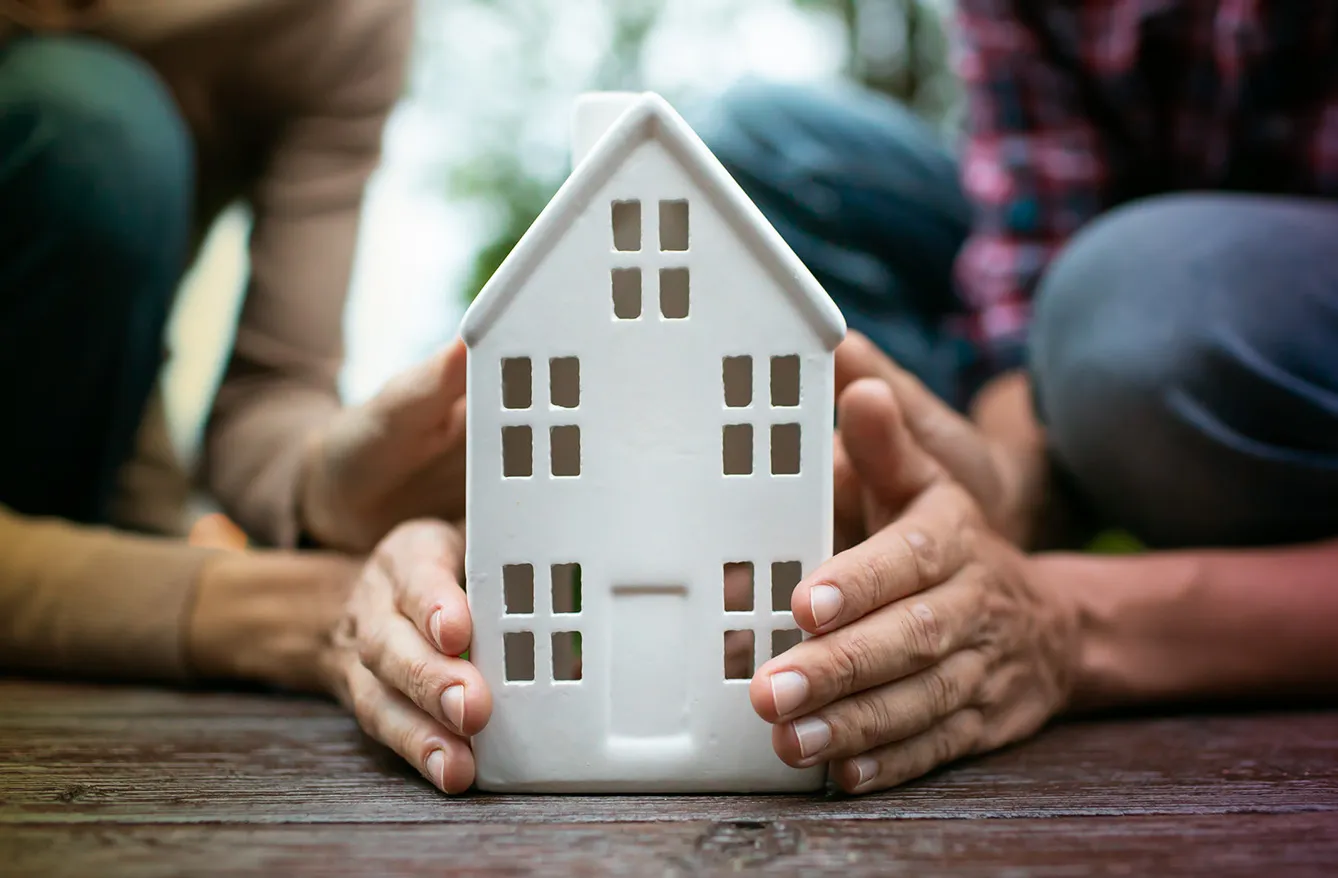While waiting for the right moment to buy an apartment in Sofia, Elena Dimitrova has become a real estate expert. Who wouldn’t? After all, it’s been well over a decade since Elena, a small business owner, and her family have been looking for the right offer at the right time. And while prices in Sofia and other big cities in Bulgaria have been consistently changing by going up, one thing remains steady: Elena’s resistance to taking up a mortgage.
“We will do it the old-fashioned way even if it takes ten more years. With a little help from our parents and putting in our own savings,” the mother of two says in a conversation with 3Seas Europe. “We did speak to a mortgage expert who painted us a promising picture. Living with a mortgage is doable in our situation, but no, thanks.“
In a country where owning property is not a desire but a must, people like Elena are hardly an exception. According to 2020 data by Eurofound, seven out of ten Europeans live in a mortgage-free property. But in Bulgaria, that number stands at a whopping 82%. In fact, the only two EU countries with a higher percentage of mortgage-free properties are Croatia (84%) and Romania, the uncontested leader with 95%. For comparison, in the much more prosperous Netherlands, only 8% of dwellings have no mortgage, the lowest indicator in the European Union.
How is it possible that more economically challenged countries across Central and Eastern Europe have much higher levels of home ownership than wealthier countries in Western Europe? Easy. Witnesses to many economic crises, many fiscally conservative citizens of countries across the CEE region have learned to rely on the one bank that is always open for them: Their own savings. In Bulgaria, Eurofound data shows that only 2% of the dwellings have mortgages, compared to an EU average of 27% and 61% in the Netherlands.
Low in debt
As 3Seas Europe already wrote, Central European countries generally have lower debt than Western and Southern European countries. The most indebted country in the EU is Greece, with a public debt of 194.6% (as of 2021). It is followed by Italy (149.9%), Portugal (125.4%), Spain (118.3%), France (112.9%), and Belgium (109.1%). On the second end of this axis, we have Estonia, with debt worth 18.4% of its GDP, followed by Bulgaria (23.9%) and Luxembourg (24.5%).
A similar pattern can be seen in household debt. With modern banking becoming available only at the end of the 20th century across the CEE region, understandably, households haven’t been rushing to apply for platinum credit cards. The numbers confirm that. In Denmark, the debt-to-income ratio of households amounts to 207.32%, Eurostat data shows (as of 2021). For comparison, the average debt-to-income ratio of households in Latvia amounts to 29.18%. In Hungary – 35.85%. In Lithuania – 38.09%. A little bit higher, but still below the European average, are Slovenia (41.93%), Croatia (52.21%), Poland (55.79%), Estonia (70.33%) or Slovakia (73.69%).
And while the numbers do look impressive, they do not tell the whole story. In Bulgaria, those unable to move into an empty apartment provided by their parents, or those failing to come up with a payment on their own, are forced to navigate a volatile market that has little sympathy for their economic struggles.
The Eurofound numbers outline the risk, especially for Bulgaria’s two largest ethnic minorities. In fact, in Bulgaria, ethnicity was identified as a major vulnerability factor to housing insecurity. While some 30% of ethnic Bulgarians are at risk of housing insecurity, 45% of members of Bulgaria’s Turkish community might experience the same difficulties. The Roma community in Bulgaria is the one facing the biggest threat, with some 60% of its members considered to be at risk of housing insecurity.
In the city of Shumen, a regional hub in northeastern Bulgaria, 35-year-old Ahmed was recently hard at work managing the crew entrusted with renovating the newly purchased 3-bedroom apartment. This was Ahmed’s first foray into the real estate market and the first property in the city. Born and raised in a predominantly Turkish village in the wider Shumen region, Ahmed used his savings from years of driving trucks across the EU to buy the property debt-free.
Where cash reigns supreme
Buyers like Ahmed, young, living in Bulgaria but working for longer periods of time abroad, account for many of the transactions in the city of 80,000 residents. That would also explain the prices, in certain parts of the city, much closer to what one can see in bigger cities like nearby Varna, for example. Real estate agents in Shumen and elsewhere in Bulgaria are being very honest about it: Cash is king.
But what about those young people who, unlike Ahmed, lack the cash needed for a dream apartment? It seems like the tested solution of living with your parents, who might themselves be still living with their parents, is not going anywhere. Eurostat data from 2021 reveals that Bulgaria and Romania are among the countries with the highest share of people living in overcrowded dwellings across the EU, 57% and 60%, respectively, compared to an EU average of 26%.
But there’s also good news. In the period between 2010-2019, this number of people aged 25-34 living with their parents dropped by a few percentage points in Bulgaria while rising in 17 other EU countries. Does that mean those who no longer live with their parents are now property owners? In Bulgaria, for many decades now, that has been the plan.







